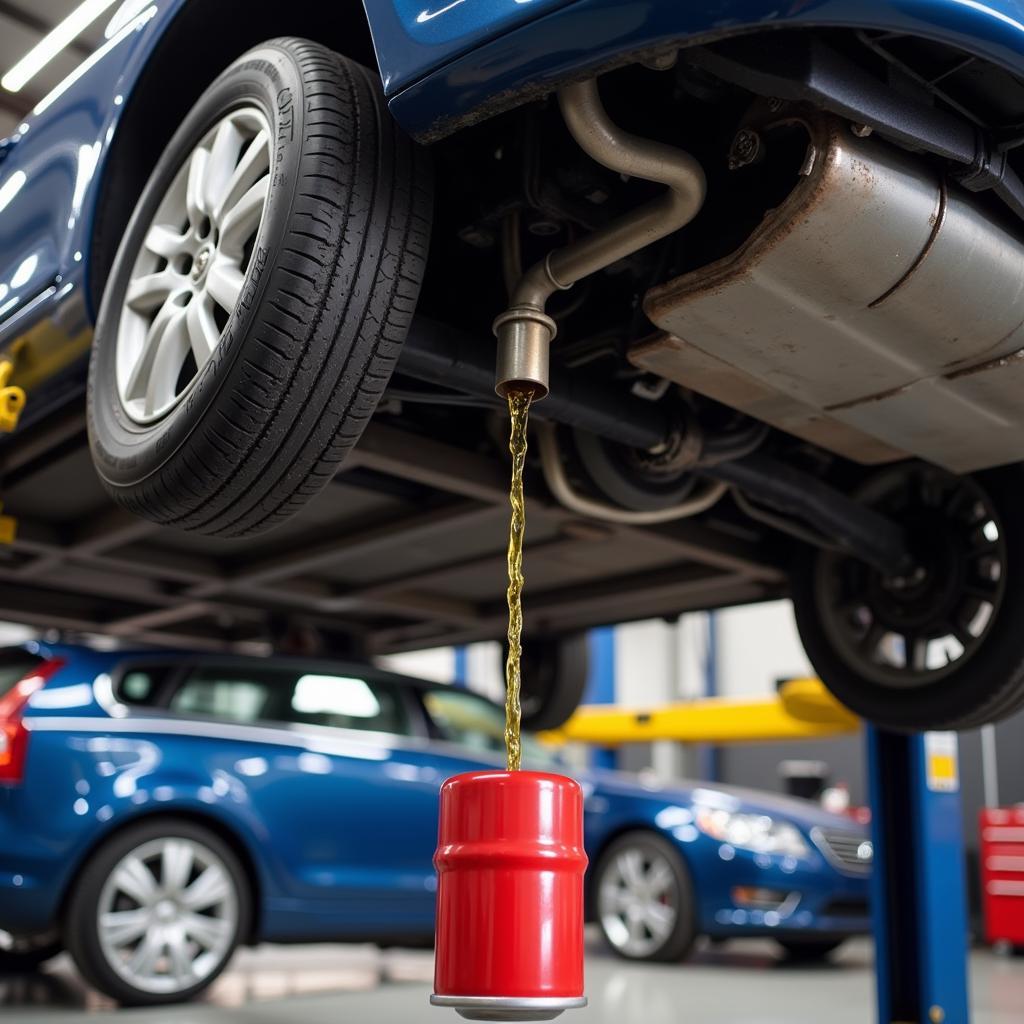Driving with low oil pressure is like playing Russian roulette with your engine. Ignoring this crucial warning sign can lead to catastrophic engine failure, leaving you stranded and facing a hefty repair bill. Understanding the severity of oil pressure problems is essential for every car owner.
Low oil pressure prevents vital engine components from receiving the lubrication they need. This lack of lubrication creates friction and heat, leading to premature wear and tear. Continuing to drive under these conditions can cause significant damage, potentially requiring a complete engine rebuild or replacement. car rpm problems can also be a related issue, impacting your engine’s performance.
What Causes Low Oil Pressure?
Several factors can contribute to low oil pressure, ranging from simple fixes to more complex issues. Low oil levels are a common culprit, easily remedied by adding more oil. However, if you frequently need to top up your oil, you might have a leak that requires professional attention. A faulty oil pump, responsible for circulating oil throughout the engine, is another potential cause. A clogged oil filter restricts oil flow, also leading to low pressure. Finally, worn engine bearings can create excessive clearances, reducing oil pressure.
Understanding the Warning Signs
Recognizing the symptoms of low oil pressure is crucial for preventing extensive damage. The most obvious sign is the oil pressure warning light illuminating on your dashboard. Ignoring this warning is akin to ignoring a fire alarm in your house – dangerous and potentially disastrous. Other indicators include unusual engine noises, such as knocking or ticking, and an overall decrease in engine performance. If you notice any of these signs, stop driving immediately and investigate the problem. Don’t hesitate to consult a professional mechanic if needed.
How to Diagnose Oil Pressure Problems
Diagnosing oil pressure problems starts with checking the oil level using the dipstick. Ensure the engine is off and parked on a level surface. If the oil level is low, add the recommended oil type for your vehicle. After adding oil, restart the engine and check the oil pressure gauge. If the problem persists, further investigation is required. A mechanic can perform a pressure test using a specialized gauge to determine the exact oil pressure. This will help pinpoint the underlying cause, whether it’s a faulty oil pump, clogged filter, or worn bearings.
The Cost of Ignoring Oil Pressure Issues
Ignoring oil pressure problems can be a costly mistake. Minor issues like leaks or clogged filters are relatively inexpensive to fix. However, if low oil pressure is left unaddressed, it can lead to major engine damage, requiring a complete rebuild or replacement. The cost of an engine rebuild can easily reach thousands of dollars, a significant expense that could have been avoided with timely maintenance. Regular oil changes and addressing oil pressure problems promptly are crucial for protecting your engine and your wallet. Sometimes, seemingly unrelated issues like car injector problem can indirectly impact oil pressure if they significantly affect engine performance.
Preventing Oil Pressure Problems
Regular maintenance is the key to preventing oil pressure problems. Adhering to the manufacturer’s recommended oil change intervals is essential. Using the correct oil viscosity for your vehicle is also important. Regularly checking your oil level and addressing any leaks promptly can help avoid low oil pressure situations. By being proactive and attentive to your vehicle’s needs, you can save yourself from costly repairs and ensure your engine remains in top condition. Issues with matiz mileage problem car can also be related to how well you maintain the car and its oil levels.
 Car Undergoing an Oil Change Service
Car Undergoing an Oil Change Service
“Regular oil changes are like giving your engine a vitamin boost,” says John Smith, a certified automotive technician with over 20 years of experience. “It’s the simplest and most effective way to prevent a whole host of problems, including low oil pressure.” Another expert, Maria Garcia, a mechanical engineer specializing in automotive lubrication, adds, “Ignoring low oil pressure is like running a marathon without water. It’s only a matter of time before you collapse.”
Conclusion
Driving with oil pressure problems is seriously risky. Don’t gamble with your engine’s health. Recognizing the warning signs and taking prompt action can save you from expensive repairs and ensure your car stays on the road. At AutoTipPro, we’re here to help you navigate any car issues. Contact us at +1 (641) 206-8880 or visit our office at 500 N St Mary’s St, San Antonio, TX 78205, United States, for expert advice and assistance. Even seemingly minor issues, such as 2004 lincoln town car catalytic converter problems or can emissions problems cause my car to pulse, can sometimes indicate underlying problems that affect engine performance, potentially influencing oil pressure indirectly. So, don’t ignore any warning signs your car might be giving you.





Leave a Reply